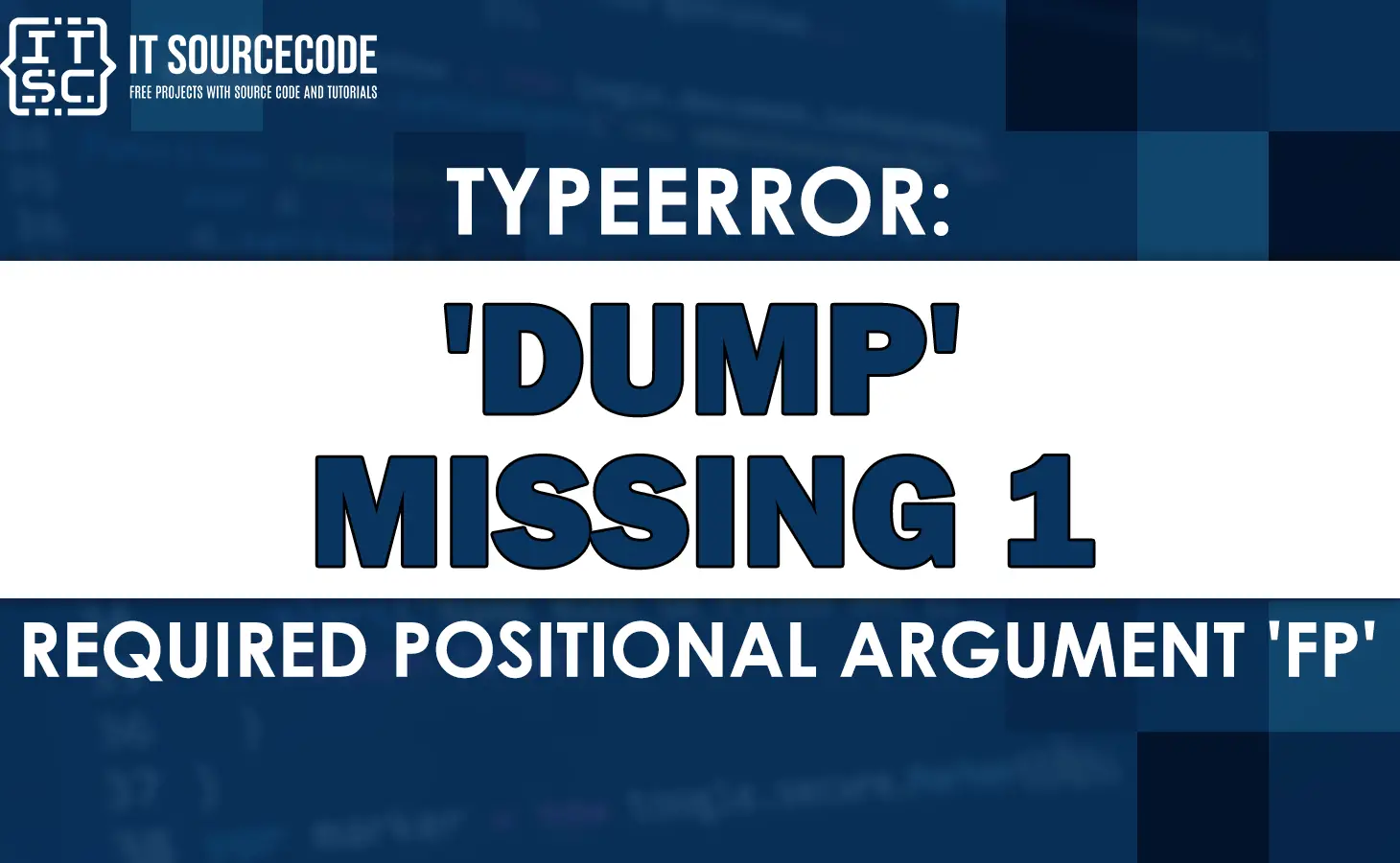Are you facing an error that reads “TypeError dump missing 1 required positional argument: fp”?
In this article, we will explore the root cause of this error message and how to fix it.
But before that, let’s understand this error first.
What is Typeerror dump missing 1 required positional argument fp?
The error ” TypeError dump missing 1 required positional argument fp” typically occurs when using the dump function in the json module without specifying the required file object argument.
Moreover, the error typically indicates that the Python interpreter encountered an issue with a specific function or module that requires a file pointer argument.
What causes Typeerror dump missing 1 required positional argument fp?
Here are some possible causes of this error Typeerror dump missing 1 required positional argument fp:
- Not passing the file pointer argument (fp) to the dump() function
- The dump() function requires a file pointer argument, which is used to write the pickled representation of an object to a file.
- Passing an incorrect type of argument to the dump() function
- The file pointer argument (fp) should be a writable file object that has a write() method.
- The file pointer (fp) passed to the dump() function is not writable
- The file pointer argument (fp) must be a writable file object.
- Incorrect use of the pickle module
- The pickle module can be tricky to use, and there are many ways to introduce errors.
- Incorrect version of Python or pickle module
- The pickle module is part of the Python standard library, and its behavior can vary depending on the version of Python and the version of the pickle module that is being used.
How to fix dump missing 1 required positional argument fp?
Here are three ways to fix this error dump missing 1 required positional argument fp:
1. Specify the file object argument when using the dump function:
This time, we are using the dump function to write the data dictionary to a file named “data.json”. Meanwhile, we will use the with statement to ensure that the file is properly closed after the write operation is complete.
Additionally, the output should print “Data written to file successfully.” which indicates that the operation is successful.
Example Program:
import json
data = {"name": "John", "age": 30}
with open("data.json", "w") as f:
json.dump(data, f)
print("Data written to file successfully.")Result:
Data written to file successfully.2. Use the dumps function instead of dump to serialize the data to a string:
In this solution, we are using dumps function instead of dump to serialize the data to a string. The dumps function will serialize the data dictionary to a JSON-formatted string. Hence, the output should be “JSON string: …” to show the serialized data.
Example Program:
import json
data = {"name": "John", "age": 30}
json_str = json.dumps(data)
print("JSON string:", json_str)Result:
JSON string: {"name": "John", "age": 30}3. Pass both the data and file object arguments to the dump function:
The other way is to pass both data and file object arguments to the dump function. We will utilize dump function to write the data dictionary to a file named “data.json”.
Meanwhile, to create a file object we will use open function, which is then passed to the dump function along with the data.
Then close method will be called on the file object to ensure that the file is properly closed after the write operation is complete.
As a result, “Data written to file successfully.” should be printed to indicate that the operation was successful.
Example Program:
import json
data = {"name": "John", "age": 30}
file_obj = open("data.json", "w")
json.dump(data, file_obj)
file_obj.close()
print("Data written to file successfully.")Result:
Data written to file successfully.Conclusion
In conclusion, the “TypeError dump missing 1 required positional argument: fp” error is a common issue encountered by Python developers. This error message typically occurs when using the dump function in the json module without specifying the required file object argument.
We hope that this article has helped you resolve this error and that you can now continue working on your Python projects without any issues.
If you are finding solutions to some errors you might encounter we also have Typeerror: can’t compare offset-naive and offset-aware datetimes.

